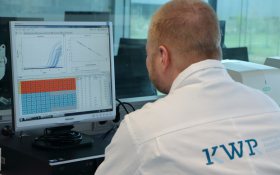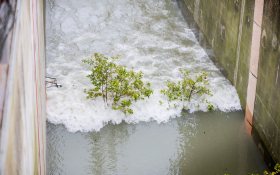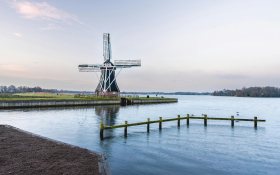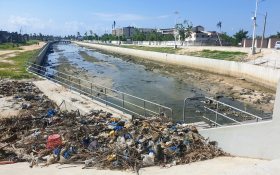Export growth Dutch water sector back on track
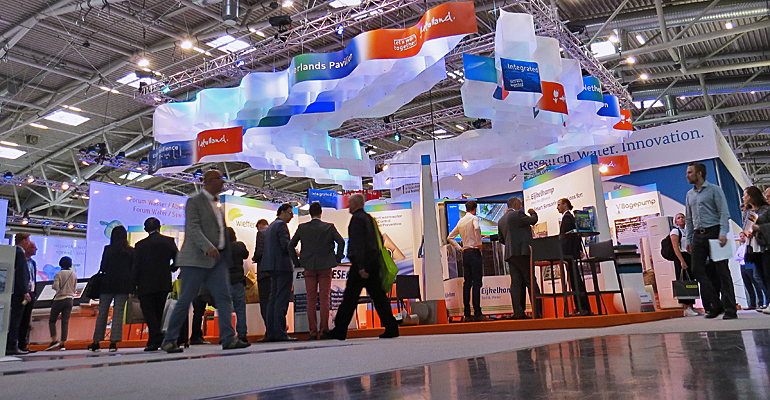
Companies in the Dutch water sector report a further growth of their export. For 2018 they expect their exports to be 7.6 billion euro, an increase of 6.9 percent compared to 2017.
Especially companies that are active in the field of water treatment show a continuous growth of their exports. Companies in the field of water management and hydraulic structures faced a period of less export growth that directly resulted from the low oil prices. For 2018, however, they expect a recovery.
The export figures of the Dutch water sector have been published in the latest edition of the Water Sector Export Index (WEX). The latest WEX report gives insight in the definitive figures for 2017, provisional figures for 2018, and a global estimate for exports in 2019. The research was carried out by agency Panteia within the framework of the Partners for Water Programme of the Dutch Government. The Netherlands Water Partnership, Water Alliance and ENVAQUA are the initiators of the research.
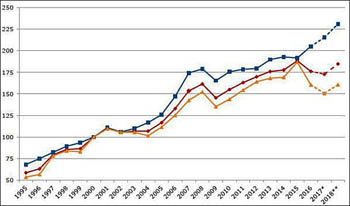 In 2000 the WEX-index was 100% and ever since the export of the Dutch water sector steadily increased with dips in 2009 (global financial crises) and in 2016 (low oil prices). Source: Water Sector Export Index, December 2018.
In 2000 the WEX-index was 100% and ever since the export of the Dutch water sector steadily increased with dips in 2009 (global financial crises) and in 2016 (low oil prices). Source: Water Sector Export Index, December 2018.
Increasing demand
The Dutch water sector is reportedly positive about the future and expects its market share to further expand in 2019.
Increasing demand due to the effects of climate change and urbanisation, is given as main reason for this anticipated growth.
Innovation is key
Managing director Bianca Nijhof of the Netherlands Water Partnership, is happy with these positive expectations and points out that innovation is key to maintain this export growth and compete on the international market.
Nijhof is pleased that the export growth is not only developing in distant countries, but also those closer to home, in Europe. "At NWP we see a lot of possibilities for the Dutch water sector on the European market."
As an example she mentions the initiative of the Dutch water sector at the climate summit COP24 in Poland last December, where Polish and Dutch organisations collaborated on the development of holistic change and concrete actions for ‘climate adaptive cities’ as a first step towards a European Urban Water Partnership.
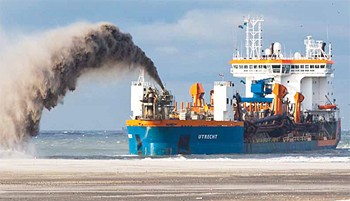 Typical activity for Dutch dredging companies is the rainbowing of sand for land reclamation. Here seen is hopper Utrecht of Van Oord creating Jambalaya Island in Dubai (photo: Van Oord).
Typical activity for Dutch dredging companies is the rainbowing of sand for land reclamation. Here seen is hopper Utrecht of Van Oord creating Jambalaya Island in Dubai (photo: Van Oord).
Less land reclamations
This especially concerns Dutch companies that export services and equipment related to water management and hydraulic structures (in Dutch referred to as Delta technology), including land reclamation and navigational dredging.
In 2016 this sector segment of the Dutch water sector suffered abroad from reduced investments driven by lower oil prices. Offshore companies and countries in the Middle East, but also Australia and Brazil cut their investments significantly on new water infrastructures.
"These are big foreign markets for Dutch dredging companies such as Boskalis and Van Oord", explains Frank Goossensen, chairman international working group for water and maritime of Topsector Water & Maritiem, a joint trade oriented initiative by the Dutch government and industry.
Coastal cities and river deltas
"Luckily, these companies and also the large consultants anticipated on this development", Goossensen continues, "and are now also focusing on new markets, such as the construction of off shore wind farms and subsea cable laying. These export activities are not reflected in figures of the WEX."
Goossensen expects that Dutch companies will be able to expand their world market position for water-related construction works in coastal cities and river delta areas as a whole. "These activities have the advantage to be less influenced by fluctuating oil prices and are reflecting the global market trends."
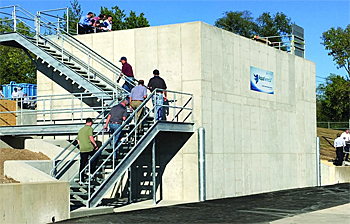
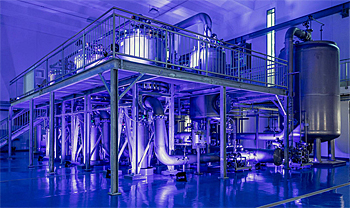
Very steady growth
The export figures of companies selling services and products abroad related to water treatment, show a very steady increase and for 2018 another 7 percent growth is expected.
According to managing director Hein Molenkamp of Water Alliance this growth is difficult to explain as the companies are almost all small-medium sized and active in many niches, ranging from processing equipment, sensoring devices, to turn-key delivery of water treatment plants.
Water Alliance is a partnership between companies, knowledge institutes and governments supporting and promoting innovative Dutch water technology companies nationally and internationally and according to Molenkamp this is now beginning to bear fruit. "Most Dutch water tech companies are small or medium sized and we support them in bringing new innovations to the market also export markets", he explains. "An example is the contact we established with five other water tech hubs in the world, Singapore, US, Israel, China and South Korea. Through these contacts we have better access to the local markets."
Leading in many niche markets
But Molenkamp remains modest about the support by Water Alliance. "The export growth is not a consequence of trade missions and collective pavilions at trade fairs only. Somehow the Dutch companies manage to maintain their leading positions in those niche markets."
He specially mentions the entrepreneurship skills, having the right technology and finding good partners abroad. "Apparently they can bring innovations to the market successfully", Molenkamp adds. He is confident that this ability will result in more future export growth for Dutch water technology companies.
About the WEX
The WEX is an indicator that shows the annual exports trends in the Dutch water sector, and specially for the delta and water technology sectors.
The research agency Panteia carried out the research within the framework of the Partners for Water Programme of the Dutch Government. NWP, Water Alliance and ENVAQUA are the initiators of the research.
(Top photo: Dutch pavilion at last year's IFAT trade fair, in Munich, Germany)
Read also on this website
● COP24: Dutch and Polish partners sign LoI for hands-on green-blue city projects, 11 December 2018
● The best of 2018: Our Top 10 stories worth reading again, 28 December 2018
● AIWW Summit 2018: Two additional Amsterdam Agreements signed on knowledge exchange and financing, 21 November 2018
● IFAT 2018: A look back on a successful and diverse Dutch participation, 29 May 2018
More information
Netherlands Water Partnership
The Hague, the Netherlands
+31 70 304 37 00
www.netherlandswaterpartnership.com
Water Alliance
Leeuwarden, the Netherlands
+31 58 284 90 44
www.wateralliance.nl
